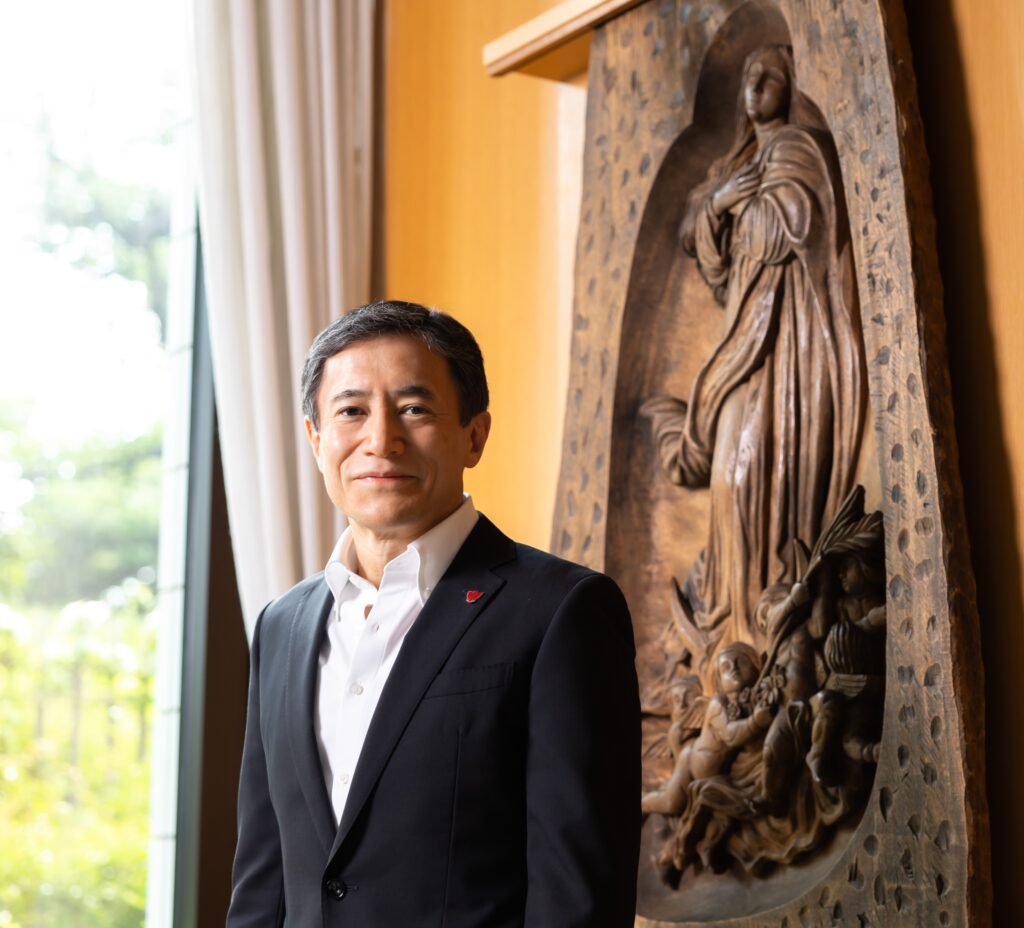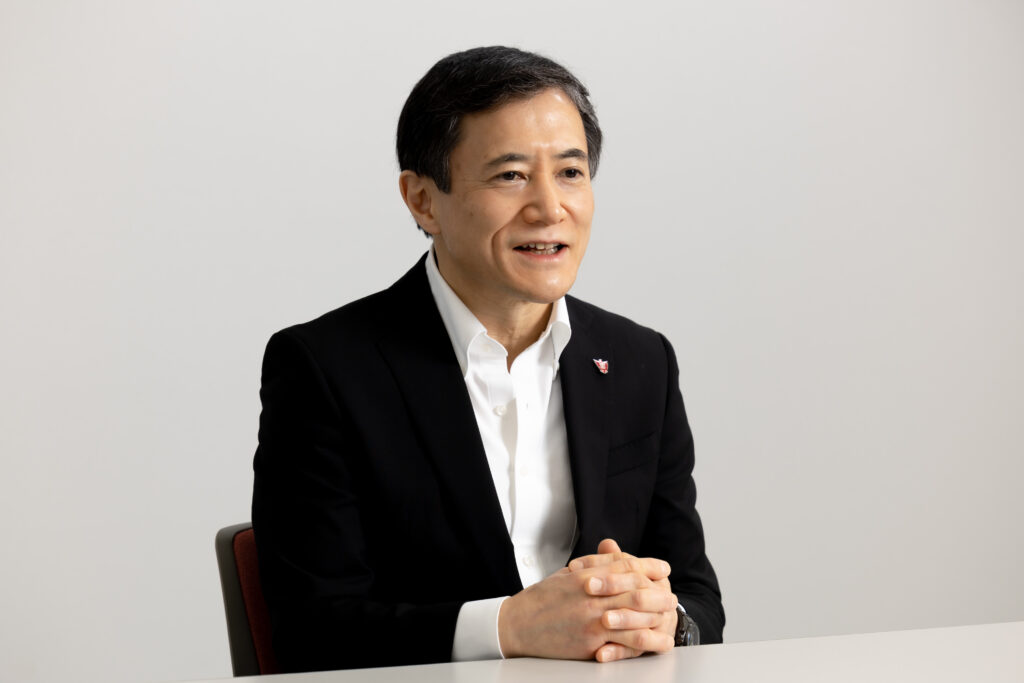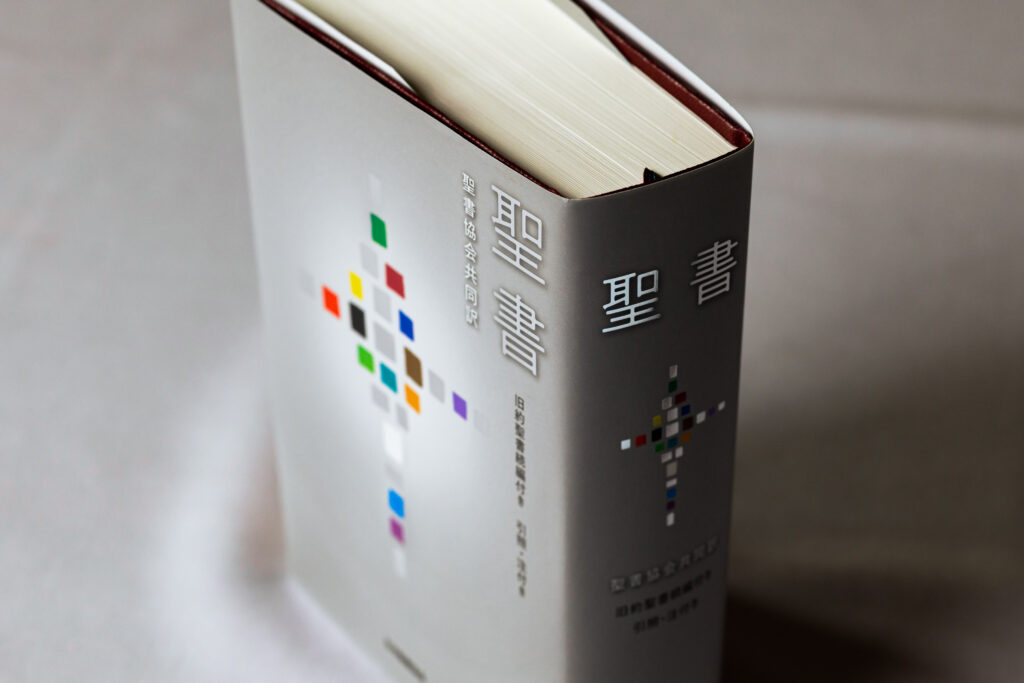
The research of Professor Hitoshi Kawanaka of the Faculty of Theology is focused both on fundamental theology and the spirituality of Ignatius of Loyola. He deals with the challenges of fundamental theology, a field of dogmatics that finds the most application, and the translation of the “Spiritual Exercises” of Ignatius, which comprise the spiritual core of the Society of Jesus.
Fundamental theology is a ‘foundation’ in the sense that it deals with the rational underpinnings of the Christian faith, and apart from being ‘foundational’ it is the most applied field of theology. Fundamental theology developed as a justification, against the manifold criticisms and attacks that were levelled against Christianity. It was formerly referred to as “apologetics,” but is now known as “fundamental theology.”
In the past, missionary work was generally perceived as the believers setting out to convert the heathens. Nevertheless though, after the 20th century the approach of immanence began to gain propulsion. This approach attempts to outline the fact that as long as human beings are what they are, their desires align with the messages presented in the Biblical and Christian faiths.
On looking back on history, we observe that this approach of immanence did exist in ancient times, and it is also present in the Bible. Hence, more than being a new discovery, it may perhaps be judged as an approach we have rediscovered. To inquire into the concepts of modern Christian beliefs and missionaries, is also a key issue in fundamental theology.
The Society of Jesus and its Spiritual Core, the “Spiritual Exercises”

I also deal with the “Spiritual Exercises” that were authored by Ignatius of Loyola (1491-1556) the founder of the Society of Jesus, and I am planning on publishing a Japanese translation of that work in 2023.
Attempting to decipher what Ignatius penned in the 16th century in Spanish using his own specific style of writing, and then attempting to translate the same into Japanese, is by no means an easy task.
An example that highlights this challenge is the term “historia,” which may be translated in modern Japanese as “history” or “historical.” Yet, translating this word as “historical,” would be to restrict its significance to chronicled events of the past that can be verified.
The essence of the “historia” that Ignatius refers to is the significance of “history” in terms of the events related to Jesus Christ when viewed from a Biblical perspective, including his pre-existence as the Son of God, his incarnation, his death on the cross and his resurrection, and his second coming. I have translated this term as “history” but have added ruby characters on top to convey the meaning of “historia,” and I have also included footnotes.
The Thrill of Studying Theology
Research into the “Spiritual Exercises” that encompass around five centuries of history not only demands a sound grasp of Spanish and Latin, but it also requires a familiarity with a broad range of literature penned in English, German, French, and Italian, besides other modern languages.
General research into theology requires an understanding of Hebrew which is the language of the Old Testament, Greek the language of the New Testament, and also Latin, which has for long been the official language of the Church. While there is no real need to acquire verbal fluency in these languages, gaining the ability to read them is essential, in order to proceed with the study.
Looking back on the research conducted in the past on the “Spiritual Exercises,” we see that by and large things that are vital have already been covered during the past 500 years. However, what is rewarding about theological study is not just the “Spiritual Exercises.” Rather, it is the progress that can be achieved by constantly rediscovering novel aspects.
In essence, our role as Christians and members of the Faculty of Theology is to assume responsibility for a particular period in the history of the Church, and pass on to future generations what we have inherited from the past.
Theology certainly may not lead to career development in the traditional sense of the term. Nevertheless, it is a useful branch of learning that can bring about progress in any field or occupation, since it is directly linked to the manner in which we pursue our lives.
The book I recommend
“The Bible”
(Japan Bible Society Interconfessional Version with DC with Reference and Notes)

I grew familiar with the Bible from my very early days, owing to the fact that I was baptized shortly after I was born. There is no other book that provides such comprehensive details concerning the manner in which life is to be lived. It is indeed a treasure house of knowledge.
-
Hitoshi Kawanaka
- Professor
Department of Theology
Faculty of Theology
- Professor
-
Professor Hitoshi Kawanaka is a graduate of the Department of Philosophy of the Faculty of Humanities as well as the Department of Theology of the Faculty of Theology, of Sophia University. He received his M.A. in Theology from Sophia University, and a Doctorate in Theology (Dr. theol.) from Sankt Georgen Graduate School of Philosophy and Theology. After having worked as an Associate Professor in the Faculty of Theology at Sophia University, he assumed his current position in 2014.
- Department of Theology
Interviewed: May 2022